Killing chivalry
July 14th is a very appropriate day here in France to try to conclude some thoughts about the military (that was a bit optimistic and, as usual, it's grown).
It also coincides with the publication in the US of an edition of the magazine The Nation which has interviews with 50 Americans who have served in Iraq. The image which emerges hardly matches the usual official line:
It is an axiom of American political life that the actions of the US military are beyond criticism. Democrats and Republicans praise the men and women in uniform at every turn. Apart from the odd bad apple at Abu Ghraib, the US military in Iraq is deemed to be doing a heroic job under trying circumstances.
That perception will take a severe knock today with the publication in The Nation magazine of a series of in-depth interviews with 50 combat veterans of the Iraq war from across the US. In the interviews, veterans have described acts of violence in which US forces have abused or killed Iraqi men, women and children with impunity.
The report steers clear of widely reported atrocities, such as the massacre in Haditha in 2005, but instead unearths a pattern of human rights abuses. "It's not individual atrocity," Specialist Garett Reppenhagen, a sniper from the 263rd Armour Battalion, said. "It's the fact that the entire war is an atrocity."
http://www.informationclearinghouse.info/article18004.htm
Of course there have probably been atrocities in all wars, and wars begin in the earliest records of history. However it seems that there is a natural reluctance to kill members of our own species, even when one's own life is at risk:
THE SCIENCE OF CREATING KILLERS
... In World War II, when U.S. soldiers got a clear shot at the enemy, only about 1 in 5 actually fired, according to sensational and controversial research by Army historian Brig. Gen. S.L.A. Marshall. It wasn't that they were cowards: On the contrary, they performed other perilous feats, including running onto the battlefield to rescue fellow soldiers, and sometimes they even placed themselves in greater personal danger by refusing to fire. And yet at the moment of truth, they just couldn't kill.
... The reality is that the brains of human beings - unless they fall within the demographic sliver we call psychopaths - are hardwired not to kill other humans. Like rattlesnakes that fatally bite other species but fight fellow rattlers by wrestling them, humans overwhelmingly recoil from homicide.
That's usually a good thing, because it prevents society from disintegrating into bloodthirsty anarchy.
THE SCIENCE OF CREATING KILLERS, Vicki Haddock, Insight Staff Writer, Sunday, August 13, 2006
But for the military this is a problem, and since WWII and Marshall's study, they have tried to turn the majority into something more like "the demographic sliver we call psychopaths" - with considerable success:
The Pentagon improved firing rates. Research suggests that 55 percent of U.S. soldiers fired on the enemy in the Korean War. By Vietnam that rate had climbed to more than 90 percent.
Ibid.
Revolutionary heroes
Reminders of an earlier, often more chivalrous age surround one in Nice; just up the road from us is Rue Général Hoche. So who was this general, I wondered?
Wikipedia (largely borrowing from the Encyclopaedia Britannica Eleventh Edition) had the answer, which took me back to the Revolutionary era again, and to this autodidact-soldier:
Louis Lazare Hoche (June 24, 1768 - September 19, 1797) was a French soldier who rose to be general of the Revolutionary army. Born of poor parents near Versailles, he enlisted at sixteen as a private soldier in the Gardes Francaises. He spent his entire leisure in earning extra pay by civil work, his object being to provide himself with books, and this love of study, which was combined with a strong sense of duty and personal courage, soon led to his promotion. ... he defeated the Austrians at Neuwied (April 1797) ...
Later in 1797 he was minister of war for a short period ... he died at Wetzlar on 19 September 1797 of consumption. ...He was buried by the side of his friend Marceau in a fort on the Rhine, mourned by his army and by all France."
http://en.wikipedia.org/wiki/Louis_Lazare_Hoche
Reading this I had a small Aha! moment; so it was THAT Marceau that the street just south of us was named after ! After so many reminders of philosophers living in the same streets I've lived in recently, now I'm surrounded by soldiers. Marceau's story takes us back to more chivalrous times and he was involved in the storming of the Bastille on that first July 14th:
Francois Séverin Marceau-Desgraviers (born March 1, 1769 Died September 21, 1796) was a French general of the Revolutionary Wars. ...
Desgraviers was born at Chartres. His father served as a legal officer, and Marceau received an education for a legal career, but at the age of sixteen he enlisted in the regiment of Savoy-Carignan.
Whilst on furlough in Paris, Marceau joined in the storming of the Bastille on July 14, 1789.
... In 1796, Jourdan and Jean Victor Moreau's invasion of Germany ended in disaster and Marceau's men covered Jourdan's retreat over the Rhine. Marceau fought in the desperate actions on the Lahn (16-18 September 1796) until at Altenkirchen on September 19, he received a mortal wound. He died two days later, aged only twenty-seven.
[But note the following chivalrous act by his enemies]
The Austrians competed with Marceau's own countrymen to honour to the dead general. His body was burned and the ashes placed under a pyramid in Koblenz designed by Kléber.
They were transferred to the Panthéon in 1889.
Can you imagine the Americans erecting a monument to an Iraqi general, or vice-versa?
Chivalry in WWII
This kind of chivalrous behaviour was even to be found in the German military under Hitler:
Chivalry was far from dead in WWII, even if it was relegated mainly to combat pilots. Galland [one of the most successful German pilots] was a passionate believer in fair play. When Goering felt him out in 1941 regarding a hypothetical order to shoot at parachuting enemy pilots, Galland exploded with indignation.
"I should regard such an order as murder," he told Goering, "and I would do everything in my power to disobey such an order."
Happily, the order never came. Unfortunately, the same assurances cannot be given concerning American fighter pilots, who actually were ordered to do so in the case of parachuting [German] Me-262 pilots.
Cf.London Times obituary:
"Galland typified to a degree the chivalry which existed between combatants in the air and was a popular figure at the air force reunions of his old adversaries. He was, for example, a welcome figure at the thanksgiving service for the life of the legless RAF ace Sir Douglas Bader in St. Clement Danes Church in the strand, in 1982.
http://members.aol.com/geobat66/galland/london.htm
An American WWII pilot demonstrates a very different attitude (which seems to have been given official recognition in the order referred to above):
He quickly abandoned any idea of "chivalry" in combat.
"I don't believe in chivalry," said Schimanski. "I believe in killing them. They're trying to kill me.
Hey, I was in 16 actual combat encounters (either by himself or as a wingman for another plane), and I'll tell you, none of those 16 (enemy) pilots are alive."
http://www.spokesmanreview.com/sections/wwii/storytemplate.asp?ID=ace
Challenging the lunatics
Another German pilot was as successful, chivalrousl and brave in telling the German leadership exactly what he thought as his colleague Galland:
Johannes Steinhoff was truly one of the most charmed fighter pilots in the Luftwaffe. His exploits became legendary ...
... Pilots such as Steinhoff, Hannes Trautloft, Adolf Galland and many others fought not only Allied aviators but also their own corrupt leadership, which was willing to sacrifice Germany's best and bravest to further personal and political agendas. In both arenas, they fought a war of survival.
Aces like Steinhoff risked death every day to defend their nation and, by voicing their opposition to the unbelievable decisions of the Third Reich high command, risked their careers and even their lives.
http://www.tarrif.net/wwii/interviews/johannes_steinhoff.htm
He even told Hitler to his face that he thought the attack on the Soviet Union was doomed:
I first met Hitler around September 3, 1942, when he awarded me the Oak Leaves [to the Knight's Cross]. He asked those of us present about the war, which we were supposed to be winning, and what we thought about the new territory being incorporated into the Reich in the east. I mentioned something to the effect that "I hope the Führer will not become too attached to it, because I don't think we will be taking up long-term residence." He looked at me as if he was going to suffer a stroke. When he asked me to clarify my statement, I simply told him that since the United States had entered the war, and they, along with Britain, were supplying Russia, and we had no method of attacking their industry beyond the Urals, I did not think we would keep making great gains. He sat silent for a moment, then said something like, "We will finish Russia soon, and turn our attentions to the West once again. They will see that supporting Bolshevism is not to their benefit." And then we were dismissed.
I met with him again outside Stalingrad a few weeks later when he toured the front. He told me: "Now I have Russia, now I have the Caucasus. I am going to penetrate the River Volga; then after that the rest of Russia will be mine." I remember looking at the others around us and thinking that this guy was nuts.
... It was very depressing to know that our country was in the hands of this madman and the lunatics around him.
In Italy in 1944 a captured American pilot made a chivalrous promise to Steinhoff not to try to escape - but also offered a more pragmatic reason:
WWII [magazine]: Please describe your humorous encounter with a Lockheed P-38 pilot named Widen in Italy in 1944.
Steinhoff: This is a good story. I was test-flying an Me-109 with my aide near our base at Foggia. This was before I had been exiled from Germany, during my first tour as Kommodore of JG.77. Well, we were attacked at low level by a flight of P-38 Lightnings, about 100 American fighters in all, but the two of us figured, why not attack? We turned into them, and I flew through their formation going in the opposite direction, getting good strikes on a couple of them. I poured a good burst into this P-38 and the pilot rolled over, and I saw him bail out. I had this on gun camera also.
Well, he was picked up and made a POW, and I invited him to my tent for a drink and dinner, as well as to spend the night. We drank some of the local wine... and drank and drank. I thought to myself, "What am I going to do with this guy?" Well, it was long after midnight, so I lay down in my tent and stretched my legs so I could reach his head. He woke up and said, "Don't worry, I won't run away, you have my word as an officer and a gentleman. Besides, you got me too drunk." We slept, and he kept his word, and I never placed a guard on him.
WWII: So you subdued your opponent with alcohol?
Steinhoff: Yes, that's right, and it worked very well, you know. He was a very likable man, and I was very pleased to have the victory, but as I told him, I was even more pleased to see him uninjured and safe.
http://www.historynet.com/air_sea/aces/3026146.html?featured=y&c=y
Modern military create better killers
From Kubrick's "Full Metal Jacket" which provides a vivid image of US military training.
Part of the reason for the modern military's success in increasing killing rates is in deliberately dehumanizing the enemy during training:
Such bloodthirsty language helps "desensitize them to the suffering of an 'enemy' at the same time they are being indoctrinated in the most explicit fashion, as previous generations of soldiers were not, with the notion that their purpose is not just to be brave and to fight well; it is to kill people," observes military historian Gwynne Dyer in his book "War: The Lethal Custom."
Another technique is to create physical and emotional distance between the killer and the target by fostering a sense of us versus them. While physical distance is achieved with bombs, rocket launchers and even night-vision goggles, which reduce humans to ghostly green silhouettes, emotional distance often is achieved by categorizing targets as different because of their race, ethnicity or religion.
Cf.:
"A lot of guys really supported that whole concept that if they don't speak English and they have darker skin, they're not as human as us, so we can do what we want."
Specialist Josh Middleton, 23, of New York City, 2nd Battalion, 82nd Airborne Division. Four-month tour in Baghdad and Mosul beginning December 2004
The Other War: Iraq Vets Bear Witness, by Chris Hedges and Laila al-Arian, appears in the 30 July issue of The Nation
http://www.informationclearinghouse.info/article18004.htm
The psychological price
The military does whatever it can to deny the fellow humanity of enemy soldiers and is loath to repeat the spectacle of Christmas Day in 1914, when German and British soldiers crawled out of their trenches to share cigarettes, candy and soccer.
A more pervasive risk, however, is that soldiers and cops who kill pay a steep psychological price for not only using the new skills they acquire but also for acquiring the skills in the first place. The Pentagon is waging an unprecedented campaign to deal with the mental and emotional scars of combat in Afghanistan and Iraq. Turning human beings into killers is a tricky business.
Cf.:
"I guess while I was there, the general attitude was, 'A dead Iraqi is just another dead Iraqi... You know, so what?'... [Only when we got home] in... meeting other veterans, it seems like the guilt really takes place, takes root, then."
http://www.informationclearinghouse.info/article18004.htm
Turning soldiers into psychotic killers is not what Hoche and Marceau fought for. Galland and Steinhoff resisted it, even in a regime like that of the Nazis. Like Steinhoff, Galland sopke out to Hitler at an awards ceremony, and asked him to stop criticizing the Royal Air Force in his radio broadcasts (Galland respected the RAF). This was a very brave thing to do; Hitler was incensed. Such men deserve to be remembered.
But we should not rely on a few brave men; after all, as in most armies, the vast majority of Germans simply followed orders, and were most ruthless when they were encouraged to see the enemy, not as respected rivals, but as inferior, a sub-species. Even Steinhoff admits things were very different in the war against the Soviet Union:
WWII: From what I understand, all chivalry and sportsmanship was absent from the war in Russia; is that correct?
Steinhoff: Absolutely correct. In fighting the Soviets, we fought an apparatus, not a human being--that was the difference. There was no flexibility in their tactical orientation, no individual freedom of action, and in that way they were a little stupid. If we shot down the leader in a Soviet fighter group, the rest were simply sitting ducks, waiting to be taken out.
... the hardest thing about the Russian Front was the weather, that damned cold. The second thing, and probably the most important, was the knowledge that if you were shot down or wounded and became a prisoner of war--that is, if they did not kill you first--you would have it very bad. There was no mutual respect. You were safe only on your side of the lines. The Soviets did not treat our men very well after they were captured, but then again as we have learned, the Soviets we captured did not always fare well either [to put it mildly], which was unfortunate. At least in fighting against the Americans and British, we understood that there was a similar culture, a professional respect. But with the Soviets, this was unheard of. It was a totally different war.
We need many more of us to prevent the "lunatics" (as Steinhoff described the people round Hitler) taking over in the first place. It's easy to slip into pessimism, but one thing is certain, if nobody tries to bring about change it won't happen.
Reviving hope
Few people could be more critical of the current system than Chomsky, but he refuses to give in to cynicism and apathy.
Cf.:
In the past, the US could prevent unwelcome developments such as independence in Latin America, by violence; supporting military coups, subversion, invasion and so on. That doesn't work so well any more. The last time they tried in 2002 in Venezuela, the US had to back down because of enormous protests from Latin America, and of course the coup was overthrown from within. That's very new.
... Furthermore, there is South-South integration going on, so Brazil, and South Africa and India are establishing relations.
And again, the forces below the surface in pressing all of this are international popular organizations of a kind that never existed before; the ones that meet annually in the world social forums. By now several world social forums have spawned lots of regional ones; there's one right here in Boston and many other places. These are very powerful mass movements of a kind without any precedent in history: the first real internationals. Everyone's always talked about internationals on the left but there's never been one. This is the beginning of one.
http://www.chomsky.info/interviews/20060307.htm
Forums like Eurotrib, and many others like them on the internet, also provide some grounds for hope; many people want change, and are getting together (from all kinds of countries and cultures), in all kinds of ways, to inform each other, provide mutual support and to try to change things. After all, co-operation comes much more naturally to us than killing.

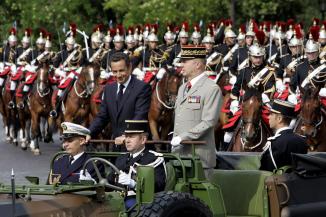
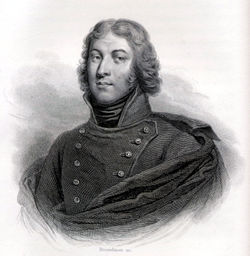
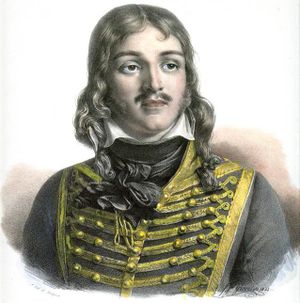
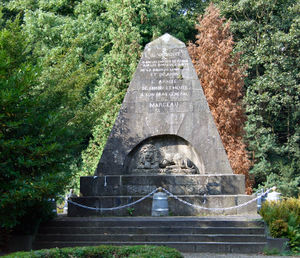
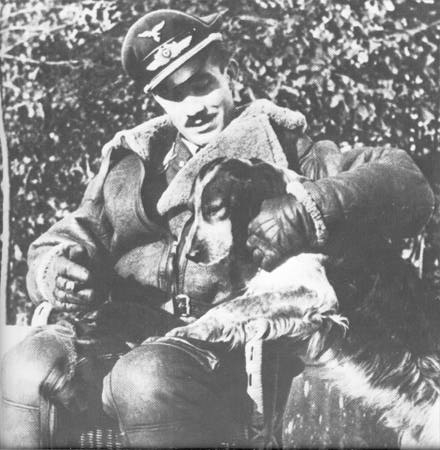
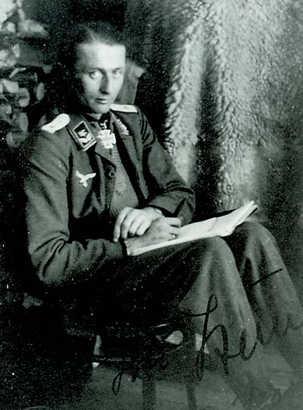
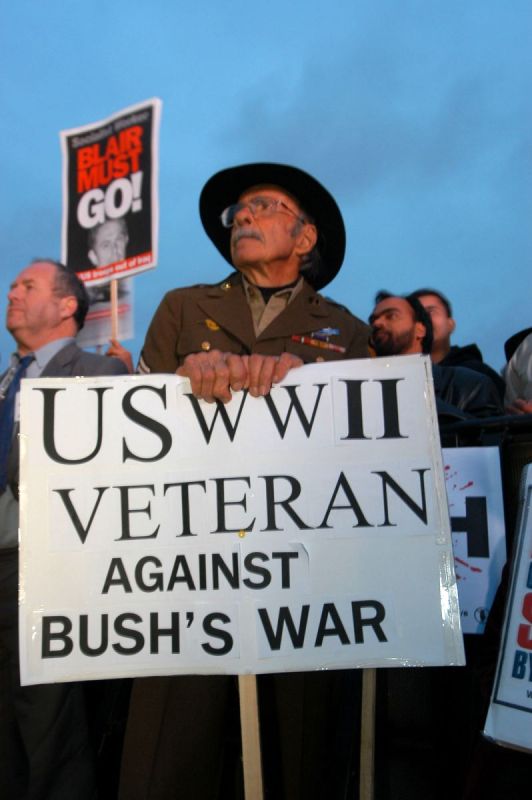
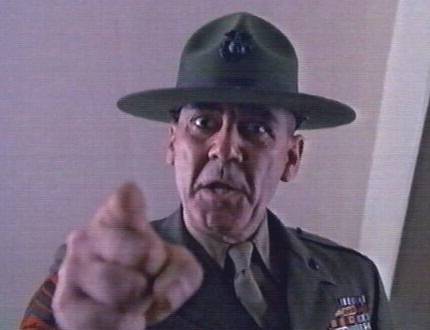
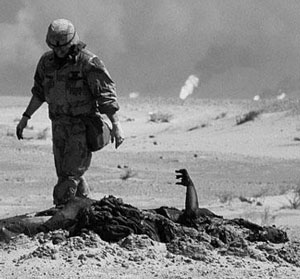
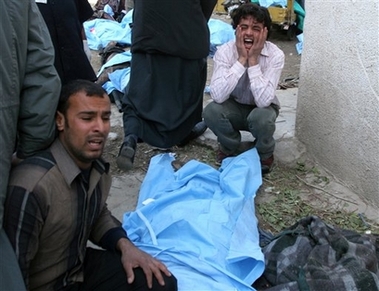
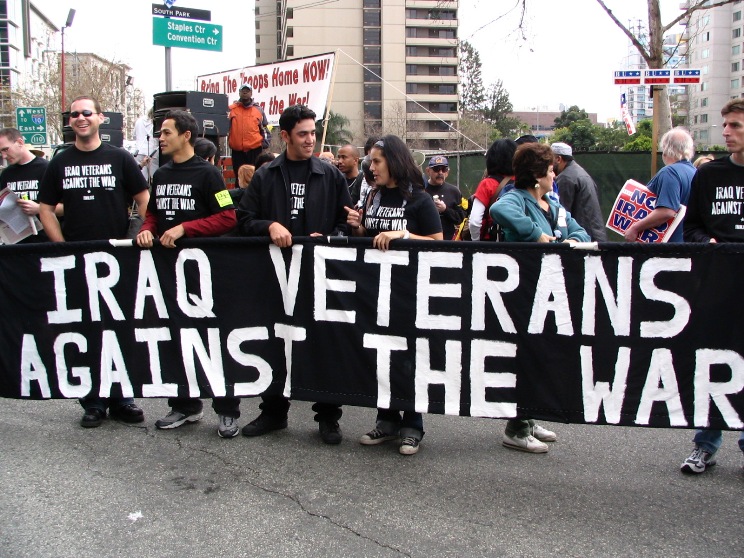
No comments:
Post a Comment